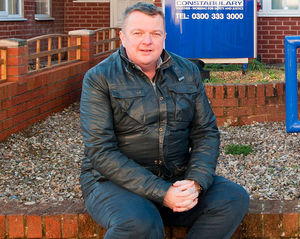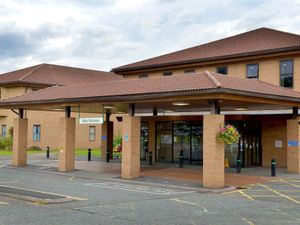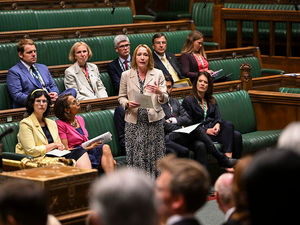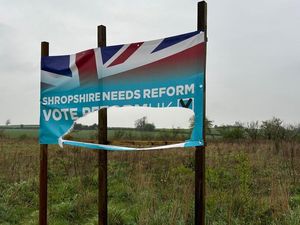Apology over Shropshire pavement permits price hike
A huge hike in the cost of pavement permits for Shropshire traders was approved without councillors noticing, according to a cabinet member, who has apologised.

Shropshire Council’s regulatory services portfolio holder Gwilym Butler has said "sorry" for the way the process was handled – with the cost of first-time permission to display goods or other items outside business premises soaring from £135 to £413.
The council’s place overview committee was due to consider plans to reduce the increase to a cost of £213 for a new permit, but instead it has decided to pass the decision on to a newly-formed ‘signs, banners, A-boards and street furniture task and finish group’.
Councillor Butler said he was happy for that to happen, but advised the panel to “make it snappy, just so we’ve got it done and dusted”.
A report by the council’s public health director Rachel Robinson said the payment permit scheme was introduced because, without it, businesses could face criminal sanctions for blocking the highway, and injured members of the public could claim compensation from them or the council.
Introduced in 2011, pavement permit payments were originally set at £50 annually.
“However, it then followed that the £50 charge for a new permit no longer adequately reflected the work undertaken,” Ms Robinson wrote.
A higher first-time charge of £135 was introduced from April 2017.
Revised charges of £413 for first-time permits and £311 renewals were then approved by the cabinet and council in February 2019, coming into force from April that year, Ms Robinson wrote.
Her report recommended the committee now reduces the charges to £213 for new and £111 for renewed pavement permits.
Councillor Butler, Shropshire Council’s cabinet member for Communities, Place Planning and Regulatory Services, said the increase had not been noticed by councillors.
He said: “In February last year, when the budget was passed, this went under the radar without us noticing, and the prices went up tremendously.
Uncomfortable
“As soon as we noticed that we said 'no, it’s wrong'. We’re sorry and we want to change it. We want to support our high street in a legal and responsible way.
“I’m happy for the task and finish group to do this, but I say make it snappy, just so we’ve got it done and dusted.”
During the meeting Councillor Joyce Barrow, who chairs the committee, suggested they pass the decisions about pavement permits on to the newly formed task and finish group.
“We could add that to their work programme, because that’s going to be a long one,” she said.
“Personally, I’m very uncomfortable with doing anything that is going to upset businesses that are already struggling.”
Ms Robinson’s report also asked committee members to consider whether registered charities, which are currently not charged for pavement permits, should continue to be exempt.
“It is not clear when or why this practice was adopted as there is no reference to it in the current guidelines,” she wrote.
“Whilst recognising the good work that charities undertake, they are using the same highway and gaining the same commercial advantages as any other business.
“Furthermore, businesses that pay, in effect, subsidise the costs of permits granted to charities and, given that charities may be in direct competition with businesses, this position is inequitable and unsustainable.
“It is considered appropriate that a more equitable and commercial approach is implemented.”





